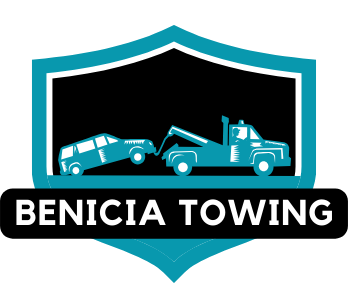
History of Benicia, CA Towing
Benicia, California, proudly holds a captivating and intricate history that intricately intertwines indigenous heritage, the impact of Spanish colonization, and the transformative era of the Gold Rush.
According to Wiki The City of Benicia was founded on May 19, 1847, by Dr. Robert Semple,[7] Thomas O. Larkin, and Comandante General Mariano Guadalupe Vallejo, on land donated to them by General Vallejo in December 1846. It was named for the General's wife, Francisca Benicia Carillo de Vallejo, a member of the Carrillo family of California, a prominent Californio dynasty.
Established in 1849, the illustrious city of Benicia achieved its incorporation as the third city in the state in 1851. In 1853, it achieved another distinction by becoming the third state capital. When news emerged that the legislature was dissatisfied with the muddiness of San Jose, the determined residents of Benicia hurried to construct a red brick capitol building. Crafting the bricks on-site, they remarkably completed the construction in a mere four months. Benicia proudly served as the state capital for a span of 13 months before the legislative hub was relocated to Sacramento. Today, this structure stands as a State Park and a cherished historic landmark, welcoming visitors for enlightening tours.
Indigenous Roots
Before European contact, the area now known as Benicia was inhabited by various Native American groups, including the Patwin tribe. These indigenous peoples thrived along the Carquinez Strait, where they fished, hunted, and gathered.
Spanish Exploration and Settlement
In the late 18th century, Spanish explorers arrived, with Francisco Solano, a Spanish Franciscan friar, founding the San Francisco Solano Mission nearby in 1823. The mission was a key part of the Spanish colonization efforts and aimed to convert Native Americans to Christianity while establishing Spanish influence.
Mexican and American Rule
With Mexico gaining independence from Spain, the mission lands were secularized, leading to private ownership. In 1847, Benicia was founded as the city of "Francisca" by Mariano Vallejo, a Californio general under Mexican rule. However, the name was soon changed to Benicia to honor Vallejo's wife, Francisca Benicia Carillo de Vallejo.
Gold Rush and Strategic Port
Benicia's fortunes took a significant turn during the California Gold Rush of 1849. The city's strategic location along the Carquinez Strait made it an ideal port for gold seekers coming from San Francisco. The town rapidly grew as a major transshipment point for gold, goods, and people heading to the goldfields.
First State Capital
In 1853, Benicia briefly served as California's third state capital, before the capital was moved to Sacramento. During its time as the capital, the city witnessed political discussions, legislative sessions, and the construction of the Capitol building.

We will get back to you as soon as possible.
Please try again later.
Railroad and Industrial Expansion
The city's growth continued with the arrival of the First Transcontinental Railroad in the 1860s, connecting the East Coast to the West Coast. Benicia's port and rail connections fueled industrial growth, with industries such as shipbuilding, lumber, and manufacturing becoming significant contributors to the local economy.
Cultural Heritage and Landmarks
The city's historic district showcases 19th-century architecture, including well-preserved Victorian homes, offering a glimpse into its past. Landmarks like the Benicia Arsenal and the Camel Barns, once part of a U.S. Army arsenal, are reminders of the city's role in military history.
Contemporary Benicia
Today, Benicia is celebrated for its small-town charm, art galleries, waterfront parks, and a strong sense of community. The Benicia Historical Museum preserves and shares the city's history through exhibits, artifacts, and educational programs.
From its Native American origins to Spanish colonization, the Gold Rush era, and beyond, Benicia's history is a testament to its resilience and adaptability. As the city continues to evolve, its historical legacy remains an integral part of its identity, connecting the past with the present. Benicia Towing Co is proud to be part of the community.
Let's Connect!
We understand how stressful it can be when your vehicle breaks down, which is why we aim to provide a stress-free experience. Our team is dedicated to being there for you every step of the way, ensuring that your vehicle is taken care of and safely transported to its destination. With our commitment to excellence, you can trust our towing services to get the job done right.